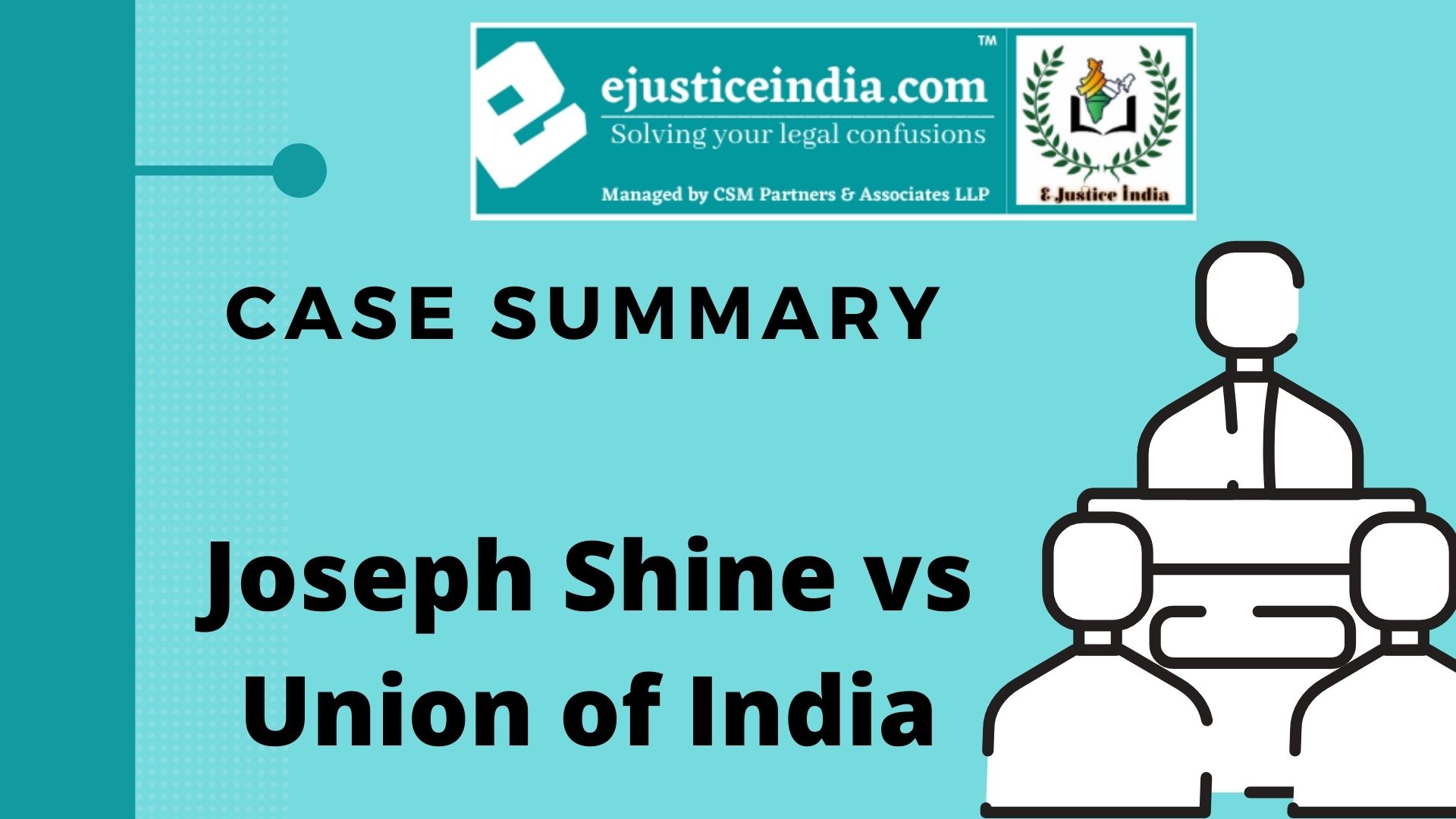Olga Tellis v. Bombay Municipal Corporation
Author : Ishita Arora
Citation
AIR 1986 SC 180
Bench
Chief Justice Y.V. Chandrachud, Justice A. Vardarajan, Justice O.C. Reddy, Justice S.M. Fazalali and Justice V.D. Tulzapurkar.
Introduction
The present case is one of those cases which broaden the horizons of the meaning of fundamental rights. In this case, right to livelihood was held to be a part of Article 21 of the Constitution of India.
Article 21 is considered as the heart of the Constitution. The heading of this article says right to life and personal liberty; hence the scope of this Article is very wide and comprehensive.
The Supreme Court has tried to define the ambits of this Article in various cases. In the case of Olga Tellis v. Bombay Municipal Corporation also, the Court diversified its interpretation of this Article. No person can live without any means of livelihood and thus right to livelihood must be treated as a part of the fundamental right to life.
Facts of the case
The facts of the case state that in 1981, the state of Maharashtra and the Bombay Municipal Corporation (BMC) decided to evict the pavement dwellers and the residents of slums in Bombay.
On 13th July 1981, the CM of Maharashtra ordered to evict them and deport them to their respective place of origin. The eviction will be according to the Section – 314 of the Bombay Municipal Corporation Act, 1888.
A number of petitions were filed in retaliation to this order in the High Court of Bombay to restrain the Maharashtra Government and BMC from implementing the order of CM. The Bombay High Court granted an interim injunction which will be in force until July 21, 1981.
It was agreed by the respondent party that nothing will be demolished till October 15, 1981. However, on July 23, 1981 the pavement dwellers and residents of slums in Bombay were huddled in the buses to deport them from Bombay.
This action on the part of respondents was challenged by the petitioner on the ground that this action violates Article 19 and 21 of the Constitution. The petitioner also contended that Section – 312, 313 and 314 of the Bombay Municipal Corporation Act, 1888 violates the fundamental rights guaranteed under Article – 14, 19 and 21 of the Constitution.
Issues and fact of law
- Whether eviction of pavement dwellers and residents of slums violates their right to livelihood under Article 21 of the Constitution?
- Whether action taken by the Maharashtra Government and BMC violates the fundamental rights of the pavement dwellers and residents of slums contained in Article 19 and Article 21 of the Constitution?
- Whether the provisions of Bombay Municipal Corporation Act, 1888 which mentions the procedure for removal of a person without any prior notice is unreasonable and irrational?
Judgement
The Court took a humanistic approach and held that the pavement dwellers and residents of slums people should get an alternative place if they are removed from their place.
The eviction orders were held to be valid. The slum dwellers were using the pavements for unauthorized purposes (but it was involuntary) and a reasonable force can be used to evict them but before the eviction they should be given a chance to leave by themselves without using ay force.
The Court held that the slums which are there for 20 years or more than that, they should not be removed unless the land is needed for public purposes and if they are removed then an alternate place should be given to them. Also, nobody has any right to encroach on such place which is reserved for public purposes. But, alternative place should be provided to the censored residents in 1976.
The court also held that Section – 314 of the Bombay Municipality Act, 1888 is not unreasonable or irrational considering the facts of the case. Section 314 gives the Commissioner the power to remove an encroachment with or without notice.
It is enabling provision and not of a compulsive nature. Sections 312(1), 313(1) (a), and 314 gives the power to the Commissioner of Municipalities to stop encroachment on the places which is a public property, cannot be considered unreasonable or arbitrary.
If possible resettlement should be done.
The guiding principle for this decision was;
- Article 39(a) of the Constitution which states that the State must make its policies in such a way which ensures that the citizens (both men and women) have the same right to livelihood.
- Article 41 of the Constitution which states that the State should guarantee the right to work to people who are facing unemployment and certain undeserved circumstances in accordance with its economic capacity and development.


